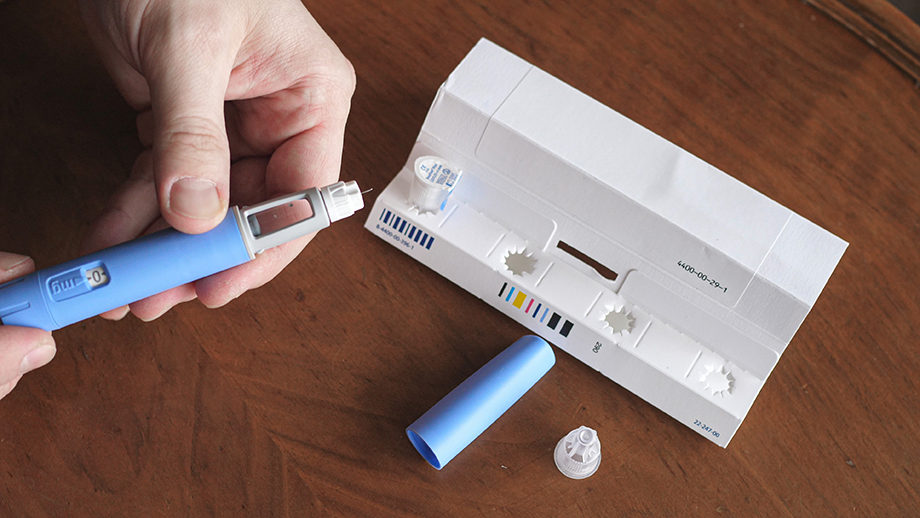It’s impossible to avoid the hype around Ozempic and related substances. An estimated 6% of Americans already receive prescriptions for anti-obesity drugs (AOMs). Since 2019, the number of prescriptions has almost doubled annually. These medications were first created to treat diabetes. Are being heralded as potentially revolutionary treatments for several illnesses beyond weight loss, including as heart disease, Alzheimer’s, sleep apnea.
However, professionals are voicing worries regarding the possible hazards that these drugs may present to patients. These include kidney and gallbladder problems, serious consequences like pancreatitis, and side effects include muscle loss. In addition to the risks associated with fake versions of these drugs. There is a chance that they could cause eating disorders.
According to Dr. Klitzman, the high costs of anti-obesity drugs and the need for lifelong use pose significant financial challenges. Which could worsen health disparities. Additionally, there’s a chance that the enthusiasm surrounding these novel drugs could obscure important public health initiatives centered on preventive and lifestyle modifications.
Table of Contents
ToggleOzempic: What is it?
Semaglutide, an FDA-approved medication that helps reduce blood glucose in persons with type 2 diabetes, is marketed under the name Ozempic. It is a member of a class of drugs known as glucagon-like peptide-1 receptor agonists, which can decrease hunger and increase insulin production with imitating the GLP-1 hormone that is generated in the gastrointestinal tract in response to eating.
It is not recommended to use Ozempic only for weight loss. In 2021, the FDA approved semaglutide under a new brand name, Wegovy, for weight loss. People without type 2 diabetes are increasingly turning to Ozempic or Wegovy to help them lose weight. Traditional media and social media influencers have widely touted the drug’s weight-loss benefits.
What distinguishes Rybelsus, Wegovy, and Ozempic from one another?
Semaglutide is the active component in all three medications. The FDA has approved Rybelsus and Ozempic to treat type 2 diabetes with raising blood glucose levels. Additionally, Ozempic has been licensed to lower the risk of cardiovascular events, such as heart attacks, among persons with cardiovascular disease who have type 2 diabetes.
Ozempic is an injection administered once a week, whereas Rybelsus is an oral pill taken once a day. Neither is particularly authorized for weight loss. Wegovy is an injectable weight-loss drug for obese adults and adolescents 12 years of age and older.
How does Ozempics work?
For individuals with Type 2 diabetes, semaglutide is essential since it controls insulin and decreases blood sugar levels. Additionally, the medication mimics the natural production of a hormone in our intestines called glucagon-like peptide-1, which limits hunger by telling our bodies when we are full and causing our stomachs to empty more slowly. As a result, eating it stimulates weight loss in people with obesity and other health problems. People feel fuller more quickly, according to Dr. Janice Jin Hwang. “Food that used to be exciting to them is no longer exciting,” she remarked, referring to the patients taking the medication.
According to Dr. Robert Gabbay, chief scientific and medical officer of the American Diabetes Association, the medicine can also lower the risk of cardiovascular disease for persons with diabetes.
The Food and Drug Administration has not approved Ozempic for weight loss, according to Dr. Andrew Kraftson, a clinical associate professor in the division of metabolism, endocrinology, and diabetes at Michigan Medicine. However, after the FDA approved Wegovy for weight reduction, there was such a high demand for the drug that some physicians went to Ozempic when Wegovy was unavailable, he noted.
What are the side effects?
Dehydration and nausea are possible side effects for people taking Ozempic and Wegovy. They may also experience sickness and exhaustion. Patients may experience changes in their bowel movements, with some experiencing severe constipation and others experiencing diarrhea.”It might get so nasty that people go to the emergency room. Patients should be monitored while taking these medications, he says, and doctors may give anti-nausea pills, laxatives, or stool softeners. In rare situations, the medicine may raise the risk of pancreatitis, a painful condition characterized by inflammation of the pancreas. Some people may also develop gallstones. In extreme cases, patients may become malnourished due to the limited amount of nutrition they may absorb.
To reduce these adverse effects, doctors usually start patients on lower doses of drugs like Ozempic and Wegovy and gradually increase them.
Are Ozempic and insulin similar?
No, insulin and Ozempic are not the same thing. It aids in the production of more insulin with your pancreas.
At the moment, Ozempic is only authorized from the FDA to treat type 2 diabetes. Low doses of semaglutide may lessen insulin dependence in individuals with type 1 diabetes, according to preliminary data published in the New England Journal of Medicine, even if Ozempic cannot replace insulin.
Any potential advantages for people with type 1 diabetes will require more investigation.
Who should to think about using Wegovy to lose weight?
Wegovy is designed for people who are obese. Those with a body mass index of 30 or greater, or a BMI of 27 or higher in people with obesity-related health issues including high blood pressure or high cholesterol, are included in this.
Semaglutide, the active component of Ozempic, reduced participants’ body weight that is over 15% over a 68-week period, according to one scientific experiment. If you believe that Wegovy or other semaglutide drugs would be a good fit for you, speak with your doctor.
What occurs if you stop using Wegovy or Ozempic to control your weight?
Being obese is a chronic condition. People who stopped receiving once-weekly semaglutide injections lost two-thirds of their weight a year later. According to this data, the long-term weight loss and heart health advantages of semaglutide-based drugs require continuous treatment.




